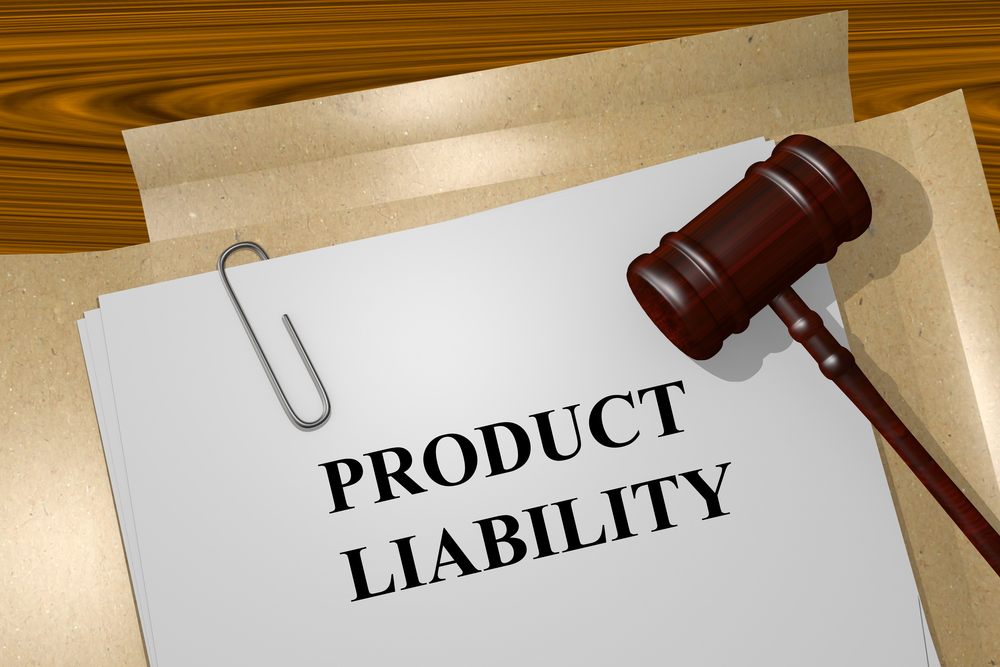When a defective product injures you in Mississippi, the manufacturer can be held legally responsible for your damages under the state’s Products Liability Act.
Mississippi law applies strict liability to product defect cases, meaning you don’t need to prove the manufacturer was negligent—only that the product was unreasonably dangerous, the defect existed when it left their control, and it directly caused your injury. Manufacturers face liability for design flaws, manufacturing errors, and failure to provide adequate warnings about product risks.
What Is a Defective Product Under Mississippi Law?
A defective product is one that poses unreasonable danger when you use it as intended or in a way that’s reasonably foreseeable. This means the product creates risks that go beyond what you would normally expect as a consumer.
The Mississippi Products Liability Act governs these cases in our state. This law says that companies who design, make, or sell products must ensure they’re safe for public use. When they fail to do this and you get hurt, you have legal rights.
Mississippi law recognizes three ways a product can be defective:
- Design defects: The product’s blueprint or formula makes it inherently dangerous
- Manufacturing defects: Mistakes during production create hazards in specific units
- Marketing defects: Missing or inadequate warnings and instructions about risks
Each type of defect requires different evidence to prove your case. Understanding which category applies to your situation helps determine the best legal strategy.
When Are Manufacturers Liable in Mississippi?
Manufacturers bear responsibility for product safety from the initial design stage through distribution and sale. They must anticipate how you might use their products and provide clear warnings about any dangers.
This responsibility extends beyond just making the product correctly. They must also market it honestly and give you proper instructions for safe use. When manufacturers cut corners or rush products to market without adequate testing, they put consumers at risk.
A product liability Mississippi case often involves proving the manufacturer knew or should have known about the danger. This is where having an experienced Biloxi defective product attorney becomes crucial for your case.
Common scenarios where manufacturers face liability include:
- Rushing products to market without proper safety testing
- Using cheaper materials that compromise safety
- Failing to warn about known side effects or hazards
- Making false claims about product safety
Does Strict Liability Apply in Mississippi Product Cases?
Mississippi applies strict liability to most product defect cases. This is a legal doctrine that makes it easier for injured consumers to recover compensation.
Under strict liability, you don’t need to prove the manufacturer was careless or negligent. You only need to show that the product was defective, the defect caused your injury, and you were using it in a foreseeable way.
This shifts the legal focus from the manufacturer’s conduct to the product’s safety. It recognizes that consumers shouldn’t bear the burden of investigating complex manufacturing processes or corporate decision-making.
To win under strict liability, you must prove:
- The product was defective: It posed unreasonable danger to users
- The defect existed when it left the manufacturer: The problem wasn’t caused later by misuse or damage
- The defect caused your injury: There’s a direct link between the flaw and your harm
- You used it foreseeably: Either as intended or in a way the manufacturer should have anticipated
What Defects Lead to Claims?
Understanding the three types of defects helps you identify whether you have a valid claim. Each category requires different types of evidence and legal approaches.
Design Defects
A design defect exists when the product’s fundamental design makes it unreasonably dangerous. This flaw affects every unit produced, making the entire product line potentially hazardous.
Design defects often involve products that could have been made safer with available technology. The manufacturer chose a dangerous design when safer alternatives existed.
Examples of design defects include:
- SUVs with high centers of gravity that make them prone to rollovers
- Children’s toys with small parts that create choking hazards
- Power tools manufactured without necessary safety guards
- Medications with formulations that cause dangerous side effects
Manufacturing Defects
Manufacturing defects occur when mistakes during production make an otherwise safe product dangerous. Unlike design defects, these typically affect only specific units or batches.
The product’s design is safe, but something went wrong during manufacturing. This could involve contamination, improper assembly, or using the wrong materials.
Common manufacturing defects include:
- Contaminated medication batches
- Cars with improperly installed brake components
- Appliances with faulty wiring that creates fire risks
- Food products contaminated with harmful bacteria
Failure to Warn
Marketing defects, also called “failure to warn,” happen when manufacturers don’t provide adequate instructions or warnings. Even perfectly designed and manufactured products can be unreasonably dangerous without proper information.
Manufacturers must warn about non-obvious risks that ordinary consumers wouldn’t expect. They must also provide clear instructions for safe use.
Examples of failure to warn include:
- Prescription drugs sold without side effect warnings
- Chemical cleaners lacking proper handling instructions
- Complex machinery without clear safety warnings
- Tools missing instructions about proper protective equipment
What Must You Prove Under the Mississippi Products Liability Act?
Mississippi law requires you to prove specific legal elements to win your case. These requirements ensure that only legitimate claims succeed and protect manufacturers from frivolous lawsuits.
Our skilled attorneys at Maloney-Lyons Personal Injury & Car Accident Lawyers can help gather the evidence needed to satisfy these requirements. The legal system demands more than just showing you were injured by a product.
Elements You Must Show
You must prove each of these elements to win your case:
- Defective and unreasonably dangerous: The product posed risks beyond what ordinary consumers would expect
- Defect existed at manufacture: The problem wasn’t caused by later damage, misuse, or alteration after it left the manufacturer’s control
- Foreseeable use: You were using the product as intended or in a way the manufacturer should have reasonably anticipated
- Proximate causation: The defect directly caused your injuries, not some other factor
- Feasible alternative design: For design defect cases, you must show a safer, practical design was available that would have prevented the injury
Meeting these elements requires thorough investigation and often expert testimony. Product liability cases are complex and demand experienced legal representation.
What To Do After a Defective Product Injury
Your actions immediately after a defective product injury can make or break your case. Taking the right steps protects both your health and your legal rights.
Time is critical in these situations. Evidence can disappear quickly, and your memories of the incident will fade. Acting promptly gives you the best chance of a successful outcome.
Seek Medical Care and Document Everything
Get medical attention immediately, even if you feel fine. Some serious injuries like traumatic brain injuries don’t show symptoms right away, and delaying treatment can harm both your health and your case.
Medical records create crucial documentation linking the product to your injuries. Keep all medical bills, doctor’s notes, and treatment records as you document your injuries for a stronger personal injury case. These documents prove the extent of your injuries and the costs you’ve incurred.
Preserve the Product and All Related Materials
Don’t throw anything away. The defective product is your most important piece of evidence, so keep it exactly as it was after the incident.
Save everything related to the product:
- The product itself, in its post-incident condition
- Original packaging and any inserts or manuals
- Your receipt or proof of purchase
- Any warranty information or registration cards
Take photographs from multiple angles before moving anything. If you must move the product for safety reasons, document its original position first.
Document the Incident While Memory Is Fresh
Write down every detail you can remember about what happened. Include the date, time, location, what you were doing, how the product failed, and who witnessed the incident.
Get contact information for any witnesses. Their testimony could be crucial if your case goes to trial. People’s memories fade quickly, so gather this information as soon as possible.
Avoid Repairs or Returning the Product
Don’t let anyone repair, modify, or take the product away. This includes the manufacturer, retailer, or insurance companies who might request it for “inspection.”
Any changes to the product can destroy evidence of the original defect. Once the product is altered, it becomes much harder to prove what caused your injury.
Contact an Experienced Product Liability Attorney
Product liability cases involve complex technical and legal issues that require immediate investigation. A product liability attorney Mississippi can take steps to preserve evidence and protect your rights.
Don’t wait to get legal help. An experienced attorney can arrange for expert examination of the product while preserving its condition as evidence. They can also handle communications with the manufacturer and their insurance company.
Who Else Can Be Liable Besides the Manufacturer?
Mississippi law allows you to hold multiple parties responsible for defective products. Anyone in the “chain of distribution” who played a role in getting the dangerous product to you could share liability.
This can significantly increase the compensation available for your injuries. Multiple defendants often mean more insurance coverage and better chances of full recovery.
Potential defendants include:
- Distributors and wholesalers: Companies that move products from manufacturers to retailers
- Retailers: The store where you bought the product
- Component manufacturers: Companies that made defective parts used in the final product
- Importers: Companies that bring foreign-made products into the United States
Mississippi has an “innocent seller” rule that often protects retailers who simply sold the product without knowledge of defects. However, retailers can still be liable if they had actual knowledge of the defect, altered the product, or exercised significant control over its design or manufacturing.
What Compensation Can You Recover?
Mississippi law allows you to seek compensation for all damages caused by defective products. The goal is to make you financially whole and account for the pain and suffering you’ve endured.
Your compensation, called “damages,” can include both economic and non-economic losses. Economic damages have specific dollar amounts, while non-economic damages compensate for intangible harms.
Available compensation includes:
- Medical expenses: All past and future treatment costs, including hospital stays, surgeries, medications, and rehabilitation
- Lost wages: Income you lost while unable to work, plus any reduction in future earning capacity
- Pain and suffering: Compensation for physical pain, emotional distress, and reduced quality of life
- Property damage: Costs to repair or replace personal property damaged by the defective product
- Loss of consortium: Impact on family relationships and companionship, which in fatal cases becomes part of wrongful death claims in the Gulf Coast
Mississippi also allows punitive damages in cases involving gross negligence or actual malice. These damages punish the manufacturer and deter similar misconduct by other companies.
How Long Do You Have to File in Mississippi?
Under Mississippi law, you have three years from the date of injury to file a product liability lawsuit. Missing this deadline means losing your right to seek compensation forever.
The three-year clock typically starts under the discovery rule, when you discover your injury and its connection to the product. This “discovery rule” protects people whose injuries don’t appear immediately or whose cause isn’t initially obvious.
Time limits matter because:
- Evidence disappears: Products get thrown away, witnesses move, and memories fade
- Medical records: Connecting your injuries to the product becomes harder over time
- Expert analysis: Testing and investigation take time to complete properly
- Legal preparation: Building a strong case requires thorough preparation
Don’t wait to contact a defective product lawyer Mississippi. Early action protects your rights and gives you the best chance of success.
How Maloney-Lyons Builds Strong Mississippi Product Cases
At Maloney-Lyons Personal Injury and Car Accident Lawyers, we believe every client deserves personal attention from experienced attorneys. Your case will be handled directly by David J. Maloney or T. Randall Lyons from start to finish, not passed off to case managers or junior staff.
We take immediate action to preserve evidence and identify all responsible parties. Our thorough investigation includes working with engineers, safety experts, and medical professionals to build the strongest possible case.
Our approach includes:
- Rapid response: We act quickly to secure evidence before it disappears
- Expert partnerships: We work with leading professionals to prove defects and causation
- Trial preparation: Every case is prepared for trial, which strengthens our negotiating position
- Personal attention: You work directly with experienced attorneys throughout your case
We handle all product liability cases on contingency, meaning you pay nothing unless we win. This ensures everyone has access to quality legal representation regardless of their financial situation.
Injured by a Defective Product? Get Legal Help Today
Dealing with injuries from a product you trusted is overwhelming and frustrating. You shouldn’t face powerful manufacturers and their legal teams alone.
At Maloney-Lyons Personal Injury and Car Accident Lawyers, we’re committed to providing the personal attention and aggressive representation you need. With offices in Biloxi and Mobile, we serve clients across Mississippi, Alabama, Florida, and Georgia.
Time is limited to protect your rights, so don’t wait. Contact us today for a free consultation to discuss your case and learn how we can help you secure the compensation you deserve.
Frequently Asked Questions
Can Manufacturers Be Held Liable for Defective Parts Made by Other Companies?
Yes, manufacturers remain responsible for ensuring all components in their products are safe, even if another company made the defective part. They have a duty to test and inspect all components before incorporating them into the final product.
Does a Product Recall Automatically Prove My Defective Product Case?
A recall provides strong evidence that a product is defective, but it doesn’t automatically prove your specific case. You must still demonstrate that the recalled defect directly caused your particular injuries and meet all other legal requirements.
Can I Still File a Claim If I Threw Away the Defective Product?
Yes, you may still have a valid case even without the physical product. Other evidence like photographs, witness testimony, medical records, and similar incidents can help prove your claim, though having the actual product strengthens your case significantly.
What If I Used the Product in a Way Different From the Instructions?
You may still have a claim if your use was “reasonably foreseeable” to the manufacturer. If the company should have anticipated that consumers might use the product that way, they can be liable for failing to provide adequate warnings about the risks.
How Are Attorney Fees Handled in Mississippi Product Liability Cases?
We work on a contingency fee basis, meaning you pay no attorney fees unless we successfully recover compensation for you. Our fee comes as a percentage of your settlement or court award, so you never pay anything out of pocket for legal representation.





